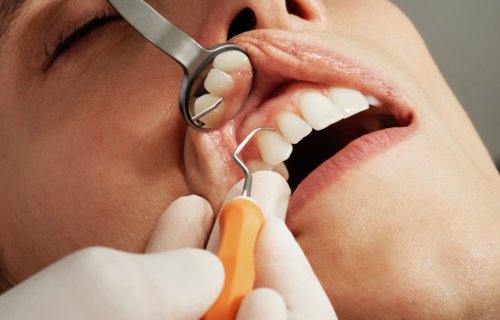Good oral hygiene is commonly associated with a bright smile and healthy gums, but its benefits extend beyond the mouth. A growing body of research suggests a surprising link between oral health and heart disease. This connection, often overlooked, emphasizes the importance of oral care not just for dental health but for overall well-being.
Periodontitis, a severe form of gum disease, is at the heart of this connection. It’s characterized by inflammation and infection of the gums, which can damage the soft tissue and bone supporting the teeth. While periodontitis doesn’t directly cause heart disease, it is a significant risk factor, primarily due to the chronic inflammation it causes.
Inflammation is a key player in both oral health and heart disease. When the gums are inflamed, harmful bacteria can enter the bloodstream, potentially leading to the narrowing and blocking of arteries. This process is a cornerstone in developing heart diseases, such as atherosclerosis.
💡What To Know About Atherosclerosis:
- Atherosclerosis is a disease characterized by the buildup of plaque inside the arteries, which are blood vessels that carry oxygen-rich blood from the heart to other parts of the body.
- The plaque buildup narrows the arteries and restricts blood flow, which can lead to serious problems like heart attack, stroke, or peripheral artery disease.
- Major risk factors for developing atherosclerosis include high cholesterol levels, high blood pressure, smoking, diabetes, obesity, lack of physical activity, and a family history of the disease.
Numerous studies have pointed to a link between poor oral health and increased risk of heart disease. For instance, people with periodontal disease are found to be at a higher risk of developing heart conditions, including heart attacks. This correlation underscores the need for holistic health approaches that consider oral health as part of overall health strategies.
Prevention is key in breaking the link between oral health and heart disease. Regular dental check-ups, at least twice a year, are essential for detecting early signs of gum disease. Professional cleaning can remove plaque and tartar, reducing the risk of periodontitis.
🦷What Does The American Dental Association Say?
- Traditionally, the recommendation was to get a dental exam twice a year. However, the ADA acknowledges that personalized care is important. They recommend discussing your oral health history and risk factors with your dentist to determine the best schedule for you.
Daily habits form the foundation of good oral health. Brushing twice daily with fluoride toothpaste, flossing daily, and replacing your toothbrush every three to four months are simple yet effective practices. These habits not only keep your gums healthy but also minimize the systemic inflammation that can affect your heart.
The link between oral health and heart disease serves as a powerful reminder of the importance of taking care of our mouths. By maintaining good oral hygiene, making smart dietary choices, and seeking regular professional care, we can protect our teeth, gums, and hearts.
